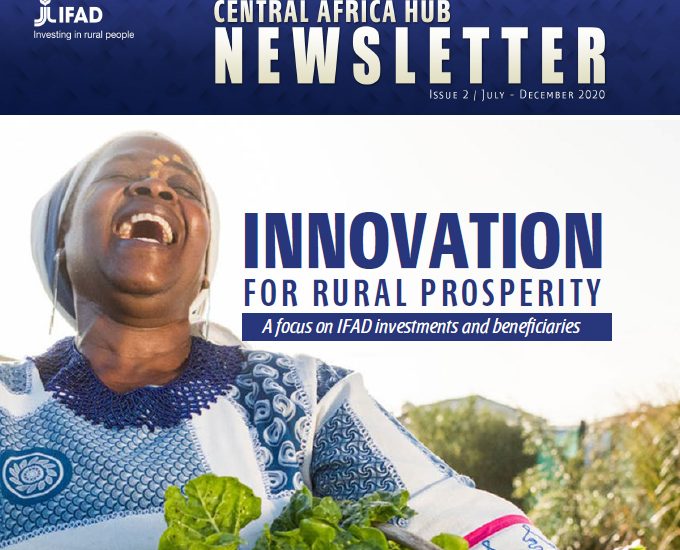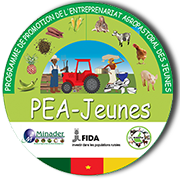- 25 janvier 2021
- Envoyé par : Administrateur
- Catégorie : Guides et supports

As of first of January 2021, I will be starting a new chapter of my life after 40 years of career of which about 13 years in the UN System (FAO and IFAD) and 27 years in Academia as Professor at Morocco premier agricultural university IAV Hassan II (Institut Agronomique et Veterinaire Hassan II). My last 3 years in WCA were probably the most exciting and passionate years at IFAD.
My role as Country Director IFAD and Hub Head has given me the wonderful opportunity to work with extraordinary people who inspired me a lot and to lead the dream team of the IFAD Central Africa Hub. I am leaving IFAD with satisfaction, as I believe that I have contributed to the noble mission of our organization. It is the hundreds and hundreds of brave women, determined men, young men and girls full of ambition met in the field that will remain in my heart. I gave them the best of myself to strengthen their empowerment and leadership thanks to IFAD.
I am leaving IFAD with a sense of accomplishment and the feeling to have carried out my mission with passion, enthusiasm and determination. Therefore, it is time for me to thank the Senior Management who placed their trust in me and a big thank you to my dream team at the Central Africa Hub in Yaoundé who have been supportive to me especially during the pandemic.
My special gratitude and thank go to Nadine for her exemplary leadership taking over the legendary Lisandro, to all WCA staff and in particular to our hard working very supportive team in our front office in Rome.
We hope that this newsletter finds you and your families well across the globe, in these challenging times of COVID19. Meeting the needs in this era will require patience, compassion and innovation. However, one thing we should all have in mind is that we are in this together. In Central Africa, the spread of COVID19 does not only have health consequences but also strong impact on economic activities including the poorest of the poor. Such consequences could further degrade if certain risks such as allowing public meeting places (drinking/socializing, schools, etc.) to start operating back without putting effective mitigation measures in place and also if market uncertainties and panic persist.
Among the negative implications of this pandemic on the sub-region’s economy are the direct impact on export produce, the disruption of global supply chains, and the decline in final demand for imported goods and services. The potential channels for economic impacts can be of several orders. First, the decline in global demand (and particularly from the main economic partners, China, Italy, France and the European Union as a whole) would translate into lower volumes of exported goods and services. Second, the effect of lower prices for the main raw materials exported to the international market, notably oil and wood. Third, the slowdown in the economy and in global investment will contribute to reducing the flow of foreign investment and transfers from migrants due to the precarious employment situation in their host country.
As part of IFAD’s strategic response to the COVID-19 crisis, the organization has been repurposing its ongoing projects as necessary and where feasible, without compromising the projects’ objectives. However, given the magnitude and scope of the pandemic and its immediate impacts on the poor and most vulnerable rural people, additional dedicated resources are required to address their immediate needs that derive from the short-term disruptions in the food systems. As a result, IFAD established the multi-donor COVID-19 Rural Poor Stimulus Facility (RPSF) as an agile, efficient and effective mechanism to mobilize additional and complementary resources in favour of the rural poor. The initiative aligns with the UN socio-economic response framework and complements IFAD’s broader COVID-19 response efforts. It seeks to improve the resilience of rural livelihoods in the context of the crisis by ensuring timely access to inputs, information, markets and liquidity. The Facility will leverage the UN Secretary-General’s Response and Recovery Fund and the work of other multilateral partners to achieve food security for the millions of poor rural people in the most remote and vulnerable communities.
The eligible countries within the Central African region (Hub) include; Cameroon, Gabon, CAR, Congo, DRC, Chad, and Sao Tome and Principe with approximately US$4 million (12% of US$34 million) representing allocations for countries in fragile situations, within the region. Also, all IFADsupported or funded programmes, at risk of not achieving their development outcomes due to Covid-19 are eligible to receive funding from the RPSF.
IFAD will continue supporting the rural poor including women and vulnerable groups with the aim to increase their resilience not only to COVID19 but also to future shocks.
HANAFI ABDELHAQ – Head of Hub and Country Director
